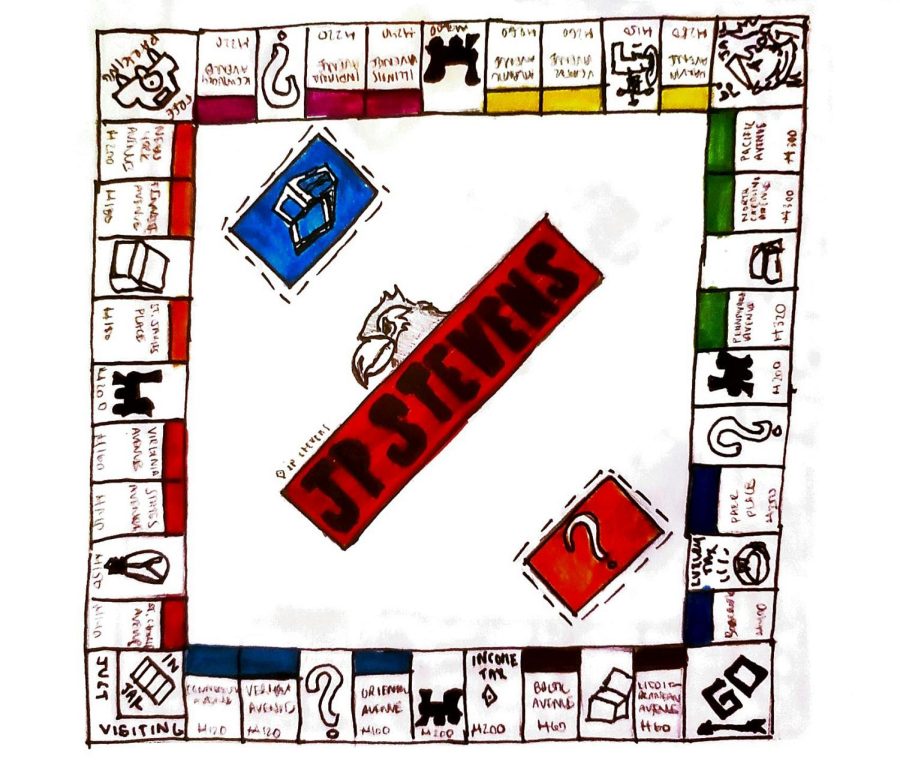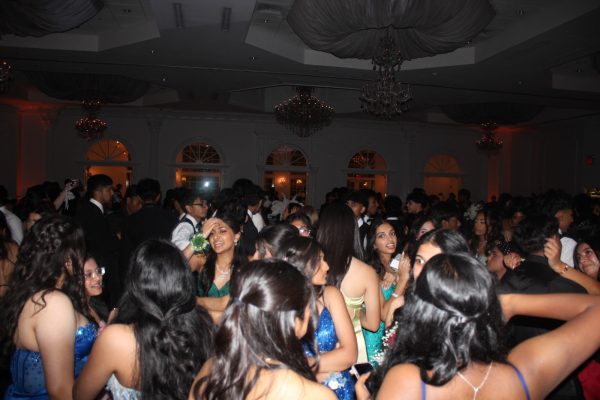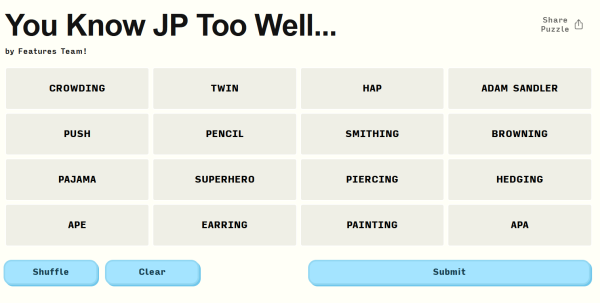The JP World of Monopoly
April 17, 2023
Money runs the world. Dollars, rupees, euros—you name it— are vital to the survival and pleasure of each and every one of the 7.8 billion people on Earth. You see it in everything you do, everything you eat, and especially, everything you play. So when one genius decides to make money off of the concept of money itself, with the flashy name of Monopoly, it is bound to become every child’s dream come true. I remember being an eight-year-old trying to learn how to play, thwarted by soap opera-like fights that always broke out over who owned Park Place. I even learned dirty tricks, like under-the-board swappings of properties for a set. Truly, the game has it all: finance, drama, and best of all, betrayal.
Being a student at JP, I see the foundations of Monopoly come to real life. The perms and revamped outfits showcased on the runway on the first day of school could be compared to the tokens one starts the game with. For example, those decked out in luxury goods would take the moneybag—a sign they would only go for the high-priced, flashy properties like Boardwalk. This is an important choice in both JP and the game, as it determines the impression you make to the other players and students around you. The properties you collect at the start of the game will impact you till the end, just like your choices at the beginning of Freshman year resonate through your high school experience. A well-known fact about students at JP is that we are all-rounders, all-knowing, and total “academic weapons”—and as in the game, the more properties one has, the better. But players have to choose wisely: will they go for the lucky Kentucky Avenue, the rich Boardwalk, or play it safe with New York Avenue?
A true Monopoly enthusiast knows that once all the properties are bought, we get to a part of the game where things start to get real. Loans, mortgages, rent rates, and debt collections reel in the colored paper bills at an astronomical rate. One can see the parallel between the jealousy with the first hotel built in the peer pressure we have here. Parents and children alike stop asking each other how their day was and replace it with “How did you do on that last test?” Towards the end of the game, the tension that exists when almost all the properties have been bought is as thick as the air in the boys’ locker room. Personally, I have never managed to play a full game of Monopoly, start to finish, till the last person is standing, since it usually ends with property cards thrown at each other. Some go home with light hearts, knowing they were millionaires of a board game meant for ages eight and up, but others go home with mild symptoms of going through their first heartbreak.
At JP, while some can get wrapped up in the competition, one thing is true: once you graduate, either in the game or JP, the memories you make with those around you will be what you remember the most. It has always been known that those business deals you make in Monopoly are not valid unless you shake on them, and in the same way, there is an unspoken bond with the classmates you spend four years with. So make the most of JP because, unlike Monopoly, high school does have an end.








































